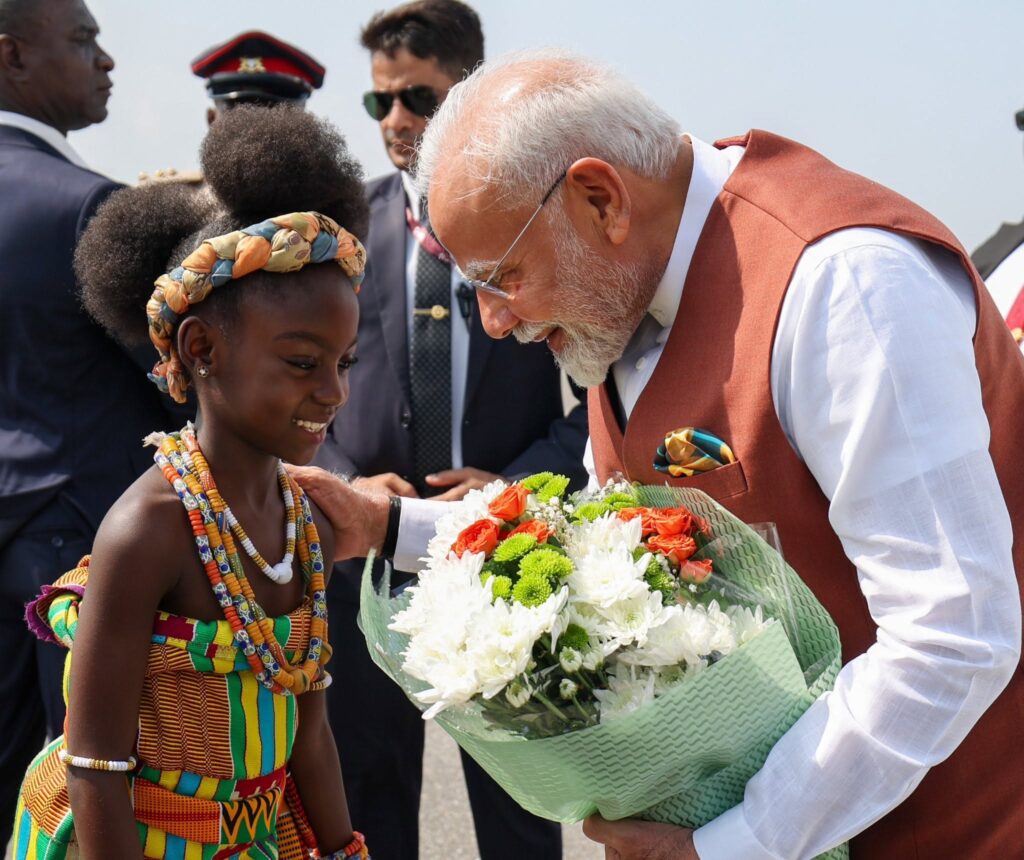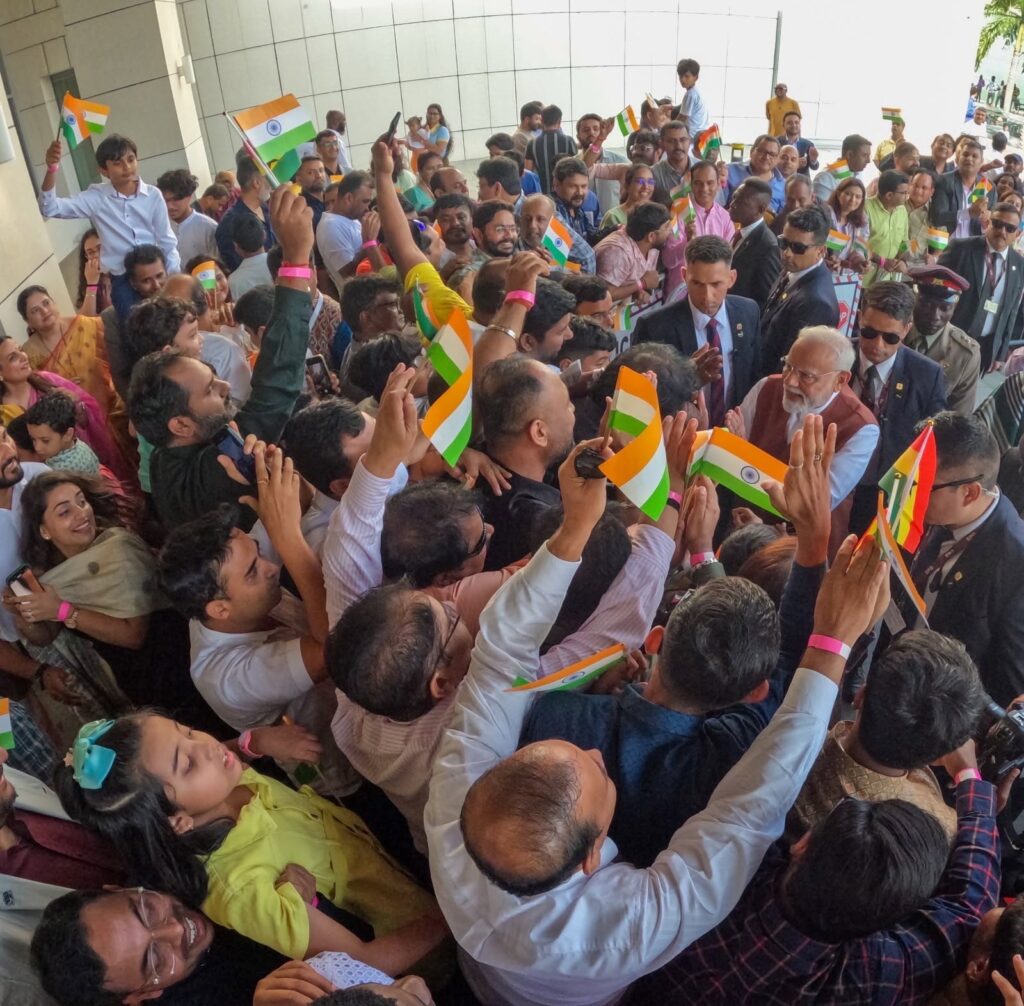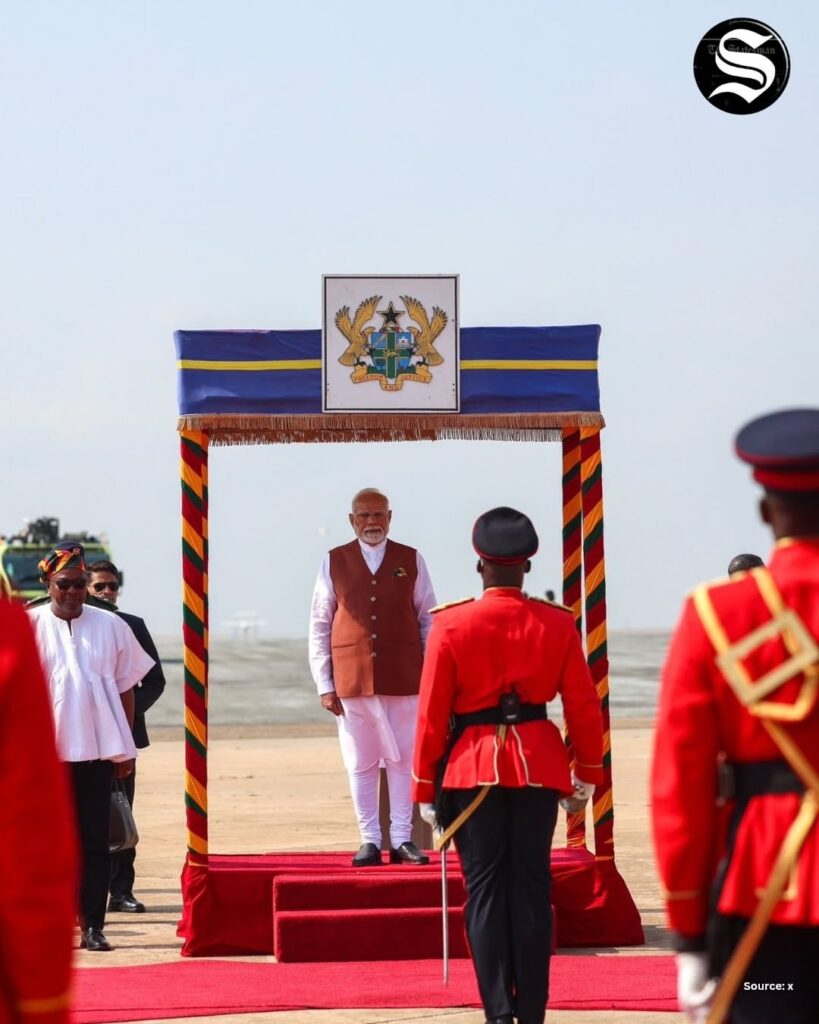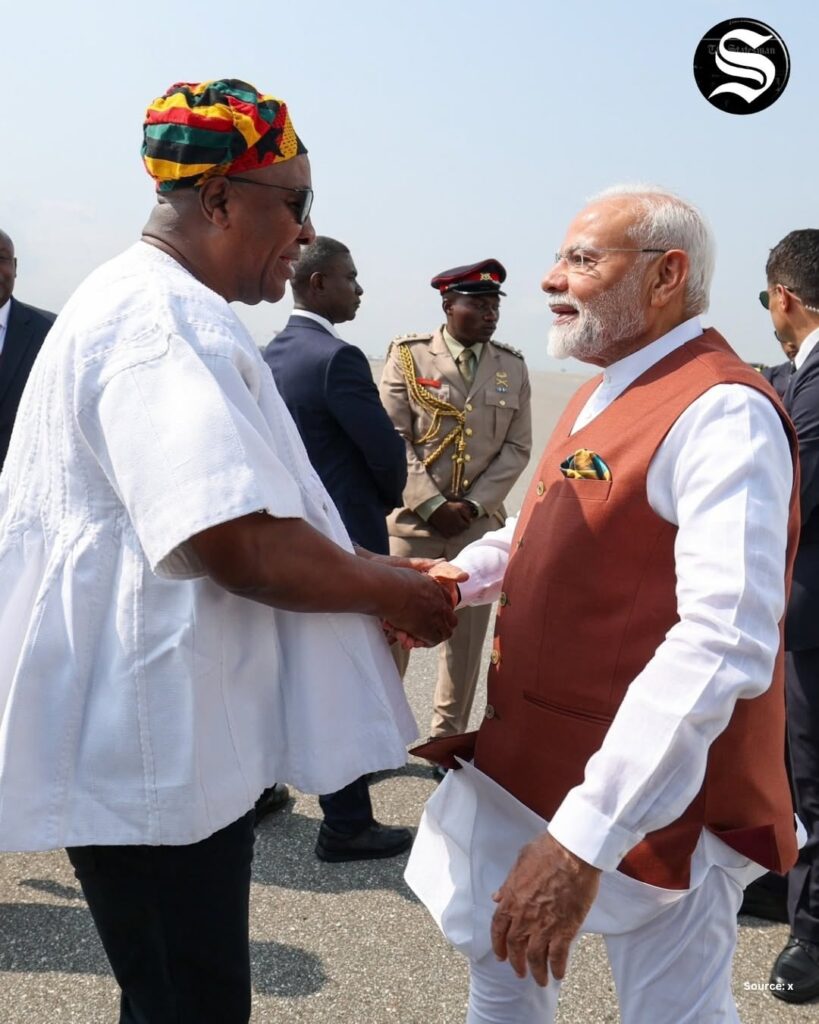PM Modi’s visit could result in developing an ambitious yet realistic blueprint for future collaborations with Africa
Rao Narender Yadav

We face neither East nor West; we face forward,” once said Kwame Nkrumah, Ghana’s first Prime Minister and later President, widely hailed as the Osagyefo – which means “redeemer” in the Akan language, who was a staunch supporter of Afro-Asian solidarity and resistance to imperialism.
From Nkrumah’s dream of African liberation, non-alignment, anti-imperialism, and South–South solidarity to Modi’s vision of a re-aligned Global South, the spirit of sovereignty, solidarity, and self-reliance continues to guide India–Africa ties.
In a powerful affirmation of this deep-rooted solidarity, Prime Minister Narendra Modi stepped onto Ghanaian soil on July 2, 2025—marking the first official visit by an Indian head of government to the West African nation in over three decades. The visit is significant, not just symbolically, but also indicates a wider signal of India’s evolving strategic commitment to Africa.
On his arrival, Prime Minister Modi was received by Ghanaian President John Dramani Mahama and greeted with cultural fanfare and a wave of warmth from Ghana’s Indian diaspora. With over 15,000 people of Indian origin residing in Ghana, many involved in business and community leadership, the people-to-people ties continue to deepen.
Beyond the ceremonial gestures, the visit could result in developing an ambitious yet realistic blueprint for future collaborations, not just with Ghana, but also about India’s deepening engagement in Africa. Several bilateral agreements are in the pipeline, covering areas as diverse as health, agriculture, defense, and digital infrastructure. There is also a plan to establish a vaccine manufacturing hub in Ghana—which will provide a major push towards Africa’s health sovereignty and industrial growth. India’s traditional medicine systems (AYUSH) is also likely to get a major boost in Africa.



Trade has always been a key priority between India and Ghana, with bilateral commerce touching USD 3 billion. India’s nearly USD 2 billion investment in diverse sector like infrastructure, energy, pharmaceuticals, and IT makes Ghana an important destination for private players. Ghana’s abundant gold, oil, and newly discovered critical minerals (for EVs and electronic industry) could further boost the bilateral trade increasing it to USD 4.5 billion in the coming years.
As a major regional player, Ghana plays a crucial role in West African stability, which can be further strengthened with India’s support through defense exports, joint training programs, and maritime cooperation. As terrorism and transnational threats rise in the region, this partnership adds strategic depth to India’s Africa outreach.
While Prime Minister Modi’s visit to Ghana can be considered as a culmination of historical goodwill, however, at the same time a major takeaway could be a more structured and strategic alliance with Ghana that will further reinforce larger India–Africa partnership. Nonetheless, it reaffirms India’s positioning as a leader of the Global South, advocating for equity, reform in global institutions, and inclusive development models.
(Author is Director, African Centre of India, New Delhi. Views are personal)